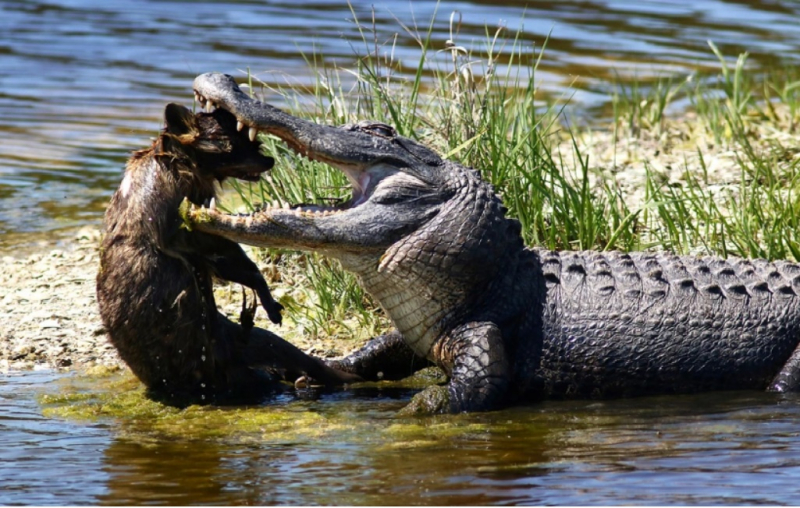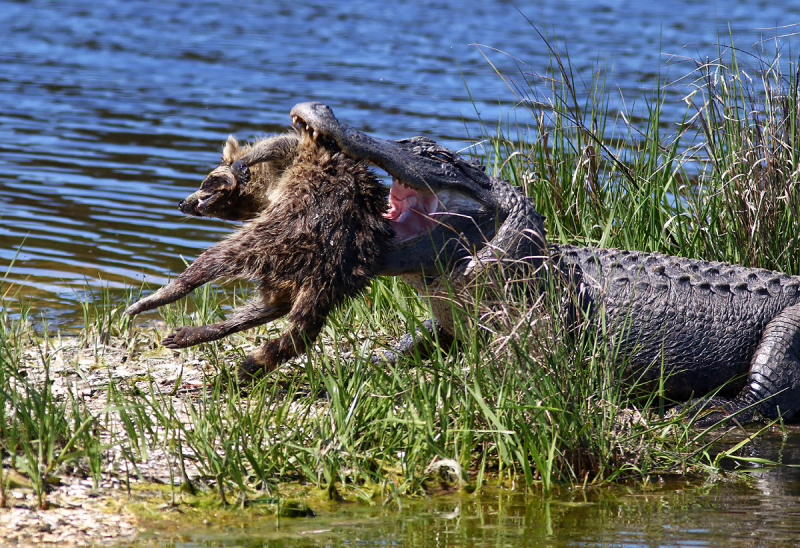Alligators
The alligator is one of the predators of raccoons that eat raccoons. An alligator is a huge reptile in the Crocodilia order, belonging to the family Alligatoridae and belonging to the genus Alligator. The American alligator and the Chinese alligator are the two existing species. Several extinct alligator species are also known from fossil remains. Alligators originally appeared around 37 million years ago during the Oligocene epoch.
Alligators eat different foods depending on their age and size. Alligators eat fish, insects, snails, crabs, and worms while they are young. As they age, they take larger prey, such as gar, turtles, and numerous mammals, including coypu and muskrat, as well as birds, deer, and other reptiles. Gizzard stones are also common in their stomachs. If they are sufficiently hungry, they will even ingest carrion. Larger alligators have been known to ambush dogs, Florida panthers, and black bears in some situations, making them the apex predator throughout their range.
As a top predator, it may influence the number of prey species such as turtles and coypu. As humans intrude on their habitat, attacks are rare but not unheard of. Alligators, unlike huge crocodiles, do not automatically perceive humans as prey when they come into contact with them, although they may attack in self-defense if provoked. Adult alligators can consume mammals such as raccoons, according to Kylon (large aquatic rodents). Anything that swims in the water or comes to the bank for a drink is prey for a huge alligator. Examples include deer and wild boars.














